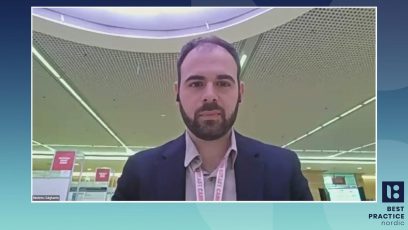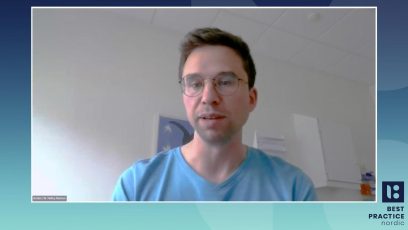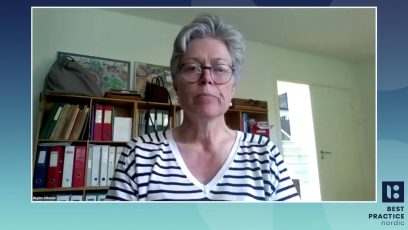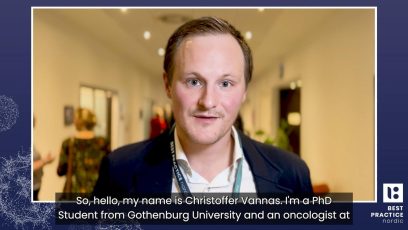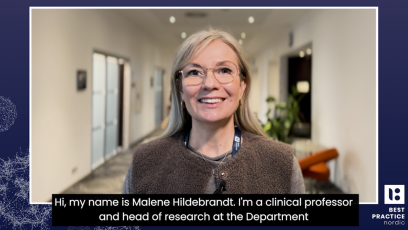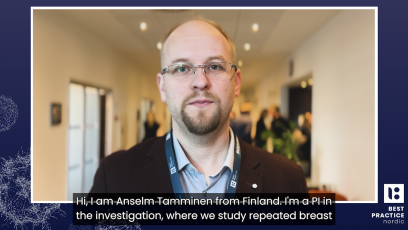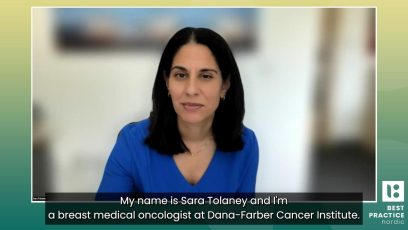The Nordics Can Have a Greater Impact on International Breast Cancer Research
BestPractice Nordic has interviewed Niklas Loman, head of the Swedish Breast Cancer Group, about the potential and vision for establishing a Nordic Breast Cancer Network. In the interview, Niklas Loman gives his perspectives on closer Nordic cooperation in research and knowledge sharing.
With approximately 25 million inhabitants, the Nordics have great potential by collaborating on clinical research in breast cancer. This would improve the Nordics on the international arena and ensure knowledge and international networks for doctors entering the specialty.
As a prelude to the upcoming conference in Copenhagen about establishing a Nordic Breast Cancer Network, BestPractice Nordic interviewed Niklas Loman, Head of the Swedish Breast Cancer Group, Associate Professor, Chief Physician, and Responsible for Breast Cancer Diagnosis at Skåne University Hospital.
Niklas Loman is also part of the Steering Group for planning the conference on December 2-3rd and for the continued work of establishing a Nordic Network.
How has the Nordic collaboration been within breast cancer?
There has been a proud tradition of close Nordic collaboration through the Scandinavian Breast Group for several years. Unfortunately, the collaboration has been dormant for about ten years but had its heyday back in the 1990s. At that time, many large, impressive joint studies were conducted and published, but for various reasons, the collaboration slowly faded.
One of the reasons may have been that it became increasingly difficult to manage the studies jointly as regulatory demands have become increasingly complex. At the same time, the pharmaceutical industry took on more responsibility for conducting studies. This has led to research in the Nordics being primarily driven through national studies.
With approximately 25 million inhabitants in the Nordics, we have great potential and can become a significant player in international research if we can start, coordinate, and conduct studies with the participation of all five Nordic countries.
Will the collaboration also have an impact on doctors entering the specialty?
A close Nordic network will have a significant impact on younger doctors entering the specialty. It will give them a large Nordic network and better opportunities to share knowledge and research. It’s also important that young doctors have the chance to meet international colleagues, make contacts, get to know them, and collaborate.
When I was a young oncologist in the mid 1990s, it was very easy to attend professional meetings and valuable conferences. There were better opportunities for funding, primarily through the pharmaceutical industry. This has been a privilege for me and my generation and has been very educational. Back then, there were only a handful of young doctors in a large oncology clinic. Since then, oncology has grown, and today it is almost impossible to count how many young doctors there are.
I think that my generation should try to give back a little and create the foundation for younger colleagues to have the opportunity to build networks and thrive. The Nordic Network has the potential to contribute significantly in this respect.
What impact will a joint Nordic collaboration in research have?
It will have a very large impact because it is incredibly complex and a great effort to manage a large multicenter study with 1,000+ patients. I hope it will be less resource-intensive if more of us lift the task together.
I am currently conducting a study where the original ambition was to have four Nordic countries involved, but for various practical reasons, it only ended up being Denmark and Sweden. There are other positive examples of trials conducted in several countries. Another important possibility that we are aiming at is multinational registry-based research, employing our unique health care registries. I hope and expect that the network will have the possibility to facilitate both kinds of efforts.
A Nordic Network will also provide better opportunities for multidisciplinary collaboration and include surgery, imaging diagnostics, pathology, oncology, and clinical genetics, which are important factors in the modern treatment of breast cancer.
What are your expectations for the meeting in Copenhagen?
I have high expectations for the upcoming multidisciplinary meeting, which will form the basis for establishing the network In future interactions I would also like to see an active participation by patients’ representatives and contact nurses. For regulatory reasons unfortunately this is not feasible at this first meeting. However, there has been great interest in participating in the meeting, and there has far from been room for everyone. I therefore hope that the conference can become a recurring activity so that we can get as many involved as possible.
Are you a breast cancer specialist?
Join the Nordic Breast Cancer Network. Gain exclusive access to the latest insights and expert updates and connect with a network of leading Nordic specialists.
Join the networkBrænder du for at skrive?
Vil du gerne dele din forskning eller dine kliniske erfaringer med dine kollegaer inden for netop dit speciale? Har du en ide til en artikel, som du gerne vil udgive hos os? Send redaktionen en mail på redaktion@bpno.dk
Send mail til redaktionen
